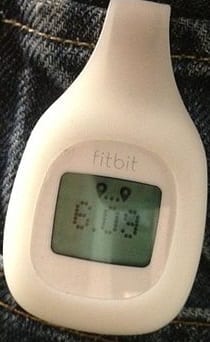Fitness and activity trackers are becoming popular and could provide helpful medical data.
Just as pay as you drive policies are becoming popular among auto insurers, a new form of potential insurance technology is now becoming increasingly popular along with the trend of wearable devices and gadgets such as smartwatches and fitness bands.
This could prove to be exceptionally helpful to the health care industry, and perhaps to insurers, as well.
![]() As fitness trackers such as Fitbit become increasingly commonplace, and major smartwatch manufacturers enhance their products with activity monitoring features, such as in the case of the Samsung Galaxy Gear 2 devices that were recently released, doctors are seeing a considerable opportunity to be able to obtain a clearer picture of their patients’ overall health. This could also prove to be beneficial as insurance technology, as it could help to reveal certain aspects that could be applied in a way that is similar to the usage based insurance that is already becoming popular among auto insurers and their customers.
As fitness trackers such as Fitbit become increasingly commonplace, and major smartwatch manufacturers enhance their products with activity monitoring features, such as in the case of the Samsung Galaxy Gear 2 devices that were recently released, doctors are seeing a considerable opportunity to be able to obtain a clearer picture of their patients’ overall health. This could also prove to be beneficial as insurance technology, as it could help to reveal certain aspects that could be applied in a way that is similar to the usage based insurance that is already becoming popular among auto insurers and their customers.
Usage based insurance technology may be breaking out of the auto sector and into health care.
These various forms of wearable technology can help patients to be able to monitor their medical conditions throughout their regular day to day lives, instead of depending on specific testing performed in the doctor’s office. For example, with the right device and app, a wearer would be able to track when blood pressure is up or down, and when their hearts are racing, no matter where they are or what they’re doing.
These mobile devices are giving doctors a better idea of what is going on in the patient’s life beyond the doctor’s office. This data, when integrated into the traditional medical record, could provide vital information for improving the accuracy of treatments. It could help to reduce the need for additional testing and could help to add greater precision to the prescriptions and treatment recommendations that are made.
At this point, this insurance technology concept has yet to undergo any lengthy or sizeable clinical trials, but these wearables are presenting a very promising opportunity for health care in the not so distant future.

